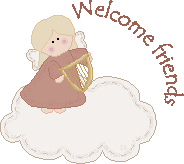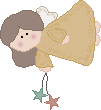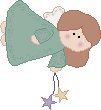
Learning to Write

You may wonder why
your child brings home papers occasionally with
incorrect spellings that haven't been corrected
or marked by the teacher's pen.
Do you remember when
your child learned to speak? She/he probably made
many "mistakes" in speech, and they
didn't bother you much. You may have corrected a
few, laughed at several; but mostly you included
the child in the events of everyday life,
encouraged the child to speak, and enjoyed the
conversations. You probably knew, as parents do,
that children learn to talk the same way they
learn to sit up, crawl, and walk - they learn to
talk by talking! Learning to write works the same
way.
I plan to help your
child learn to write the way you helped them
learn to speak. If we put all our energy into
correcting temporary spellings, children get
discouraged and lose a natural desire to write.
They learn from heavy correction that meaning is
less important than spelling the words right. If
we invite them to use their oral language in
their writing, even though they can't spell all
the words correctly, we free them to say what
they mean. In fact, they learn a lot about
writing in general, and spelling in particular,
from the risks they take along the way. Children
learn to write by writing, and we are most
helpful to them when we appreciate and encourage
their best attempts.
Is there a time for
teaching particular points of spelling, grammar,
and punctuation? YES!! When a child publishes a
story, all errors are corrected, as other
children will be readihg the story. We study high
frequency words and word family words for our
spelling tests. I want my students to study the
words to improve their writing, not just for a
test. Therefore, all words tested in spelling
become words which the students must spell
correctly in their daily writing.
I hope this has
clarified this issue for you. Please remember to
celebrate all successes, no matter how small they
may seem. Every success is a building block to
the next!

 
|